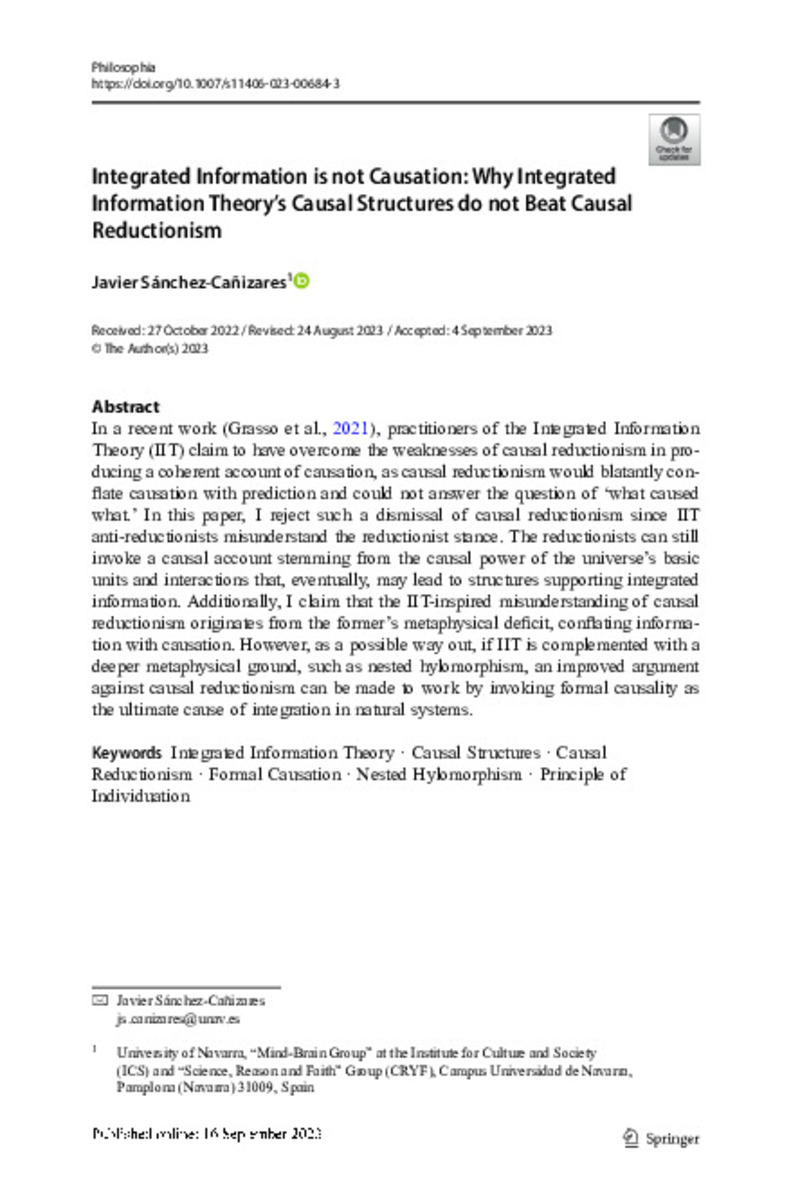Integrated information is not causation: why integrated information theory’s causal structures do not beat causal reductionism
Palabras clave :
Integrated Information Theory
Causal structures
Causal reductionism
Formal causation
Nested hylomorphism
Principle of individuation
Fecha de publicación :
2023
Nota:
This article is licensed under a Creative Commons Attribution 4.0 International License
Cita:
Sánchez-Cañizares, J. (Javier). "Integrated information is not causation: why integrated information theory’s causal structures do not beat causal reductionism". Philosophia. 51, 2023, 2439 - 2455
Aparece en las colecciones:
Estadísticas e impacto
0 citas en

Los ítems de Dadun están protegidos por copyright, con todos los derechos reservados, a menos que se indique lo contrario.








